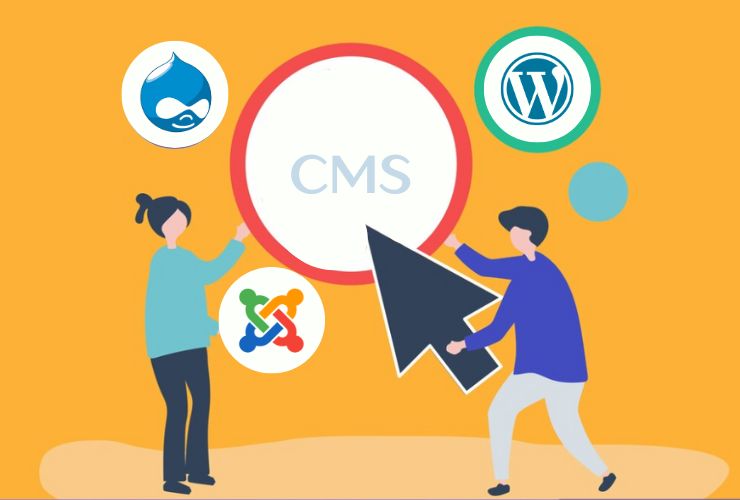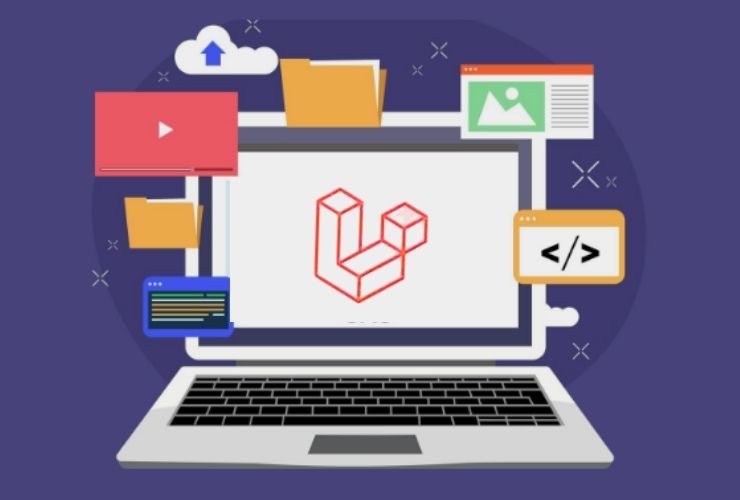In the current digital age, a content management system (CMS) is a must for companies, bloggers, and developers to build, maintain, and optimize websites effectively. With various CMS options, though, choosing the best one is not easy. Of the top players, Drupal, WordPress, and Joomla are the most sought-after options.
Every CMS possesses its own set of strengths to suit various requirements, technical savvy, and type of websites. In this blog, we compare Drupal, WordPress, and Joomla on the grounds of features, flexibility, security, usability, and scalability so that you may choose the most suitable one for your website.
1. Short Background of Drupal, WordPress, and Joomla
We know what each of them is in a nutshell prior to comparison:
Drupal
Drupal is a sophisticated, open-source CMS that is highly configurable, secure, and scalable. It is increasingly being utilized for large sites, enterprise platforms, and government sites that require excellence in functionality and security.
WordPress
WordPress is the most popular CMS, hosting over 40% of global sites. It is simple to use, very customizable, and suitable for blogs, small business sites, and e-commerce stores.
Joomla
Joomla is a flexible CMS that balances ease of use with flexibility. It’s appropriate for social network websites, web communities, and e-commerce sites requiring robust content management capabilities.
2. Ease of Use
WordPress – Most Friendly for Beginners
WordPress is the simplest CMS to work with, and hence ideal for beginners. It features a user-friendly dashboard, easy installation, and a huge collection of themes and plugins. Even people who do not know how to code can easily create and manage a website.
Joomla – A Middle Ground
Joomla is more versatile than WordPress but has a learning curve. It is simple to use for an admin panel but requires technical knowledge to use its advanced features.
Drupal – Ideal for Developers
Drupal is the least suitable for beginners and is ideal for developers. It needs advanced-level coding expertise, but it provides unparalleled customization and flexibility for complicated websites.
3. Customization and Flexibility
WordPress – Huge Plugin & Theme Repository
With more than 50,000 plugins and thousands of themes, WordPress makes it possible to customize websites without writing code.
Joomla – Advanced Content Management
Joomla possesses advanced content management features, including the ability to use multiple templates on various pages and built-in multilingual support.
Drupal – Complete Customization
Drupal provides complete flexibility, enabling developers to build extensively customized sites through the use of custom modules and APIs.
4. Performance and Speed
WordPress – Speed Depending on Plugins
WordPress websites get slow when they have an excessive number of plugins, but can be optimized to work well using caching plugins and lightweight themes.
Joomla – Good Performance if Optimized Properly
Joomla performs better than WordPress but needs optimization techniques like caching and CDN.
Drupal – Fastest CMS
Drupal is the most lightweight and optimized CMS and can handle heavy sites with loads of traffic.
5. Security
WordPress – Security Depends on Plugins
As the most popular CMS, WordPress is an attractive open target to those who want to destroy it. However, security plugins, regular updates, and good hosting could be an improvement.
Joomla – Better Built-in Security
Joomla has better built-in security features compared to WordPress, including two-factor authentication.
Drupal – Enterprise-Level Security
Drupal is the most secure CMS, hence why it’s best suited for government sites and business organizations that demand strict security.
6. SEO Features
WordPress – Best for SEO
WordPress provides great SEO features in the form of plugins such as Yoast SEO and Rank Math, hence being the ideal option for content-based websites.
Joomla – Good SEO Features
Joomla provides native SEO options, but more manual setups are needed in comparison to WordPress.
Drupal – SEO for Expert Users
Drupal is SEO optimized but needs technical knowledge to put SEO best practices into action successfully.
7. Community Support and Resources
Largest Community – WordPress
WordPress has the largest community, with enormous online tutorials, forums, and professional support.
Active Community – Joomla
Joomla has an active community and plenty of online resources, although less than WordPress.
Smaller but Expert Community – Drupal
The community of Drupal is small but very expert developers, with few resources for newbies.
8. Cost of Development and Maintenance
WP: Free to implement, although premium themes, plugins, and hosting may add an additional cost.
Joomla: Free CMS, yet custom development is expensive.
Drupal: Free CMS, but requires developers, so most expensive.
Which CMS Do You Use?
The appropriate content management system (CMS) to utilize relies on the site’s function, technical ability, and degree of scalability required. Below is an in-depth review of the application of WordPress, Joomla, or Drupal, depending on requirement:
Use WordPress If:
WordPress is the easiest and most popular CMS, best for newbies and business entities needing a user-friendly platform.
- Recommended for: Sites, businesses, online shops, portfolios, personal sites.
- Ease of use: No technical knowledge is required; anyone can host and manage a WordPress website.
- Customization: High degrees of customization with thousands of free and paid themes and plugins.
- SEO & Marketing: Built-in SEO capabilities and compatibility with leading plugins such as Yoast SEO, Google Analytics, and WooCommerce.
- Community Support: Large international community support through documentation, updates, and assistance.
- Scalability: Suits small and medium companies well but supports enterprise websites in optimal hosting and configuration.
You’re looking for an easy, agile, and search engine-optimizable site that’s a snap to maintain its content; WordPress is your solution.
Use Joomla If:
Joomla is a wonderful CMS that achieves the finest balance between simplicity and power-packed functionality and makes a superior solution for the folks who want enhanced content control as well as international language website support.
- Best for: Business sites, government sites, online publications, community websites, and multi-language websites.
- Content Management: Better handling of articles, categories, and access levels for more advanced content organization.
- Multilingual Support: Internal support for multilinguality in the software enables the site to be multilingual without using plugins.
- User Management: More control over user role manipulation than WordPress.
- Extensions & Customization: Tons of extensions and templates for enhanced functionality.
- Security: Safer than WordPress out of the box but requiring updates and custom configurations.
If you need a CMS that’s multilingual site-capable with a blend of simplicity and sophistication, then Joomla is your rightful choice.
Choose Drupal If:
Drupal is a high-end CMS ideal for developers and companies requiring advanced security, scalability, and customization.
- Best for: Large corporations, government agencies, universities, and companies requiring elaborate website structures.
- Customization & Flexibility: Highly flexible with the ability to support custom views, content types, and fields to build detailed websites.
- Security: Most secure CMS platform available for use among enterprises and government agencies.
- Performance & Scalability: Supports huge-traffic sites well.
- Developer-Friendly: Requires technical proficiency for customization but has robust development tools.
- Multilingual & API Integration: Supports multilingual sites and seamless third-party API integrations.
If you need a business-level, secure, and highly configurable CMS, then Drupal is the way.
Final Verdict:
- Best for Beginners & Blogs: WordPress
- Best for Complex & Secure Websites: Drupal
- Best for Advanced Content Management: Joomla
Whichever CMS you opt for, ensure that it is compatible with your website objectives, technical skill, and future scalability.
Contact Us Today













 Database Development
Database Development












































